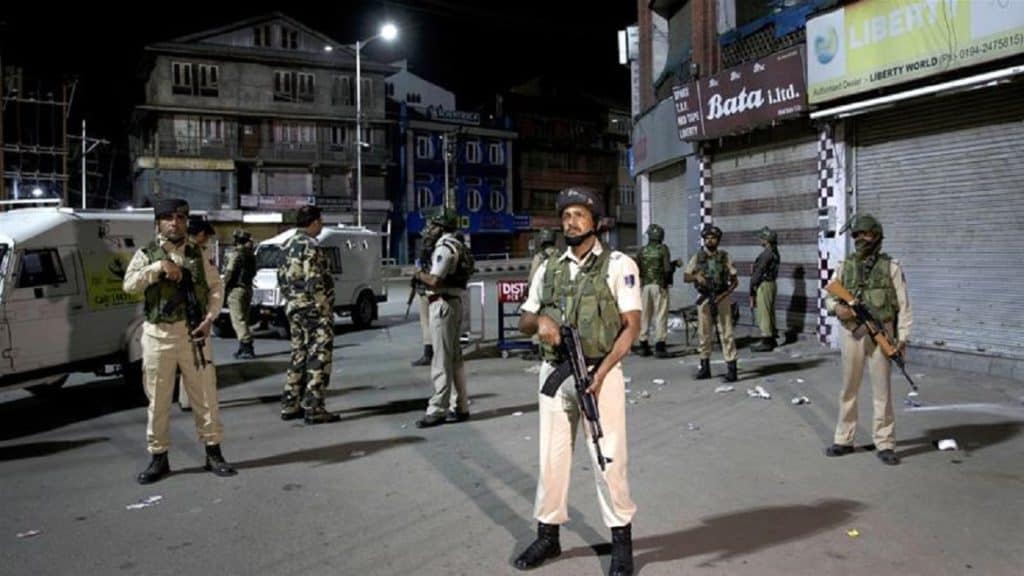By Prof. Engr. Zamir Ahmed Awan
Prime Minister Modi, one after another blunder has pushed India into chaos and anarchy. Nation-wide protests against the discriminatory amended Citizenship Act gained momentum.
Domination of Hindutva and extremist practices has spread fear and terror among all minorities and low caste Hindus. Local insurgencies have been activated. Failure on Economic front and failure on the outbreak of COVID-19 has made PM Modi nervous.
The legitimate Kashmir struggle for self-determination has entered into armed struggle from peaceful demonstrations. The right of self-determination was given to people of Kashmir, to join either India or Pakistan through plebiscite, by United National Security Council in 1948. India is defaulter of UNSC resolutions and using excessive force to repress the people of Kashmir. Kashmiri struggle is indigenous and legitimate. Pakistan along with all other civilized nations, extends moral, political and diplomatic support to the people of Kashmir. As a result, PM Modi has increased the violations of Line of Control (LoC) and instigating Pakistan toward escalation. His intentions are obviously pushing for a full-fledged war.
Pakistan is a peace-loving and responsible state. The visionary leadership in Pakistan understands the consequences of war, especially when both are nuclear powers and possesses enough piles of lethal weapons to destroy each other completely. Pakistan observes restraint and patience.
Repeated frequent violations of LoC and building unbearable pressure on Pakistan may force Pakistan for retaliation too. Pakistan cannot compromise on its integrity, territorial or ideological. Pakistan demonstrated its capacity in February last year by responding to Indian intrusion. Pakistan maintains supremacy, yet observe tolerance and restrains.
Historical background of Kashmir
The state of Jammu & Kashmir is known as heavenly place on earth for its mesmerizing beauty, awe-inspiring waterfalls, snow-capped mountains, magnificent flowering meadows and dazzling weather all-around the year. The state of Jammu & Kashmir has a close economic, cultural and religious affinity with Pakistan, around 87% of the population is Muslims.
The first and foremost aspect is the geography of Kashmir. The state of Jammu & Kashmir is endowed with a geostrategic position. Kashmir share borders with China, Afghanistan, and narrow Wakhan tract separate it from former Soviet Union territory, now Central Asia. In ancient times, traders from the Indian Sub-continent traveled through Kashmir to reach out to China and Central Asia for merchandise. Its geographic position was vital for British India to connect with China and Central Asia, which further ensured its connectivity with Eurasian land.
Kashmir is the jugular vein which ensures the continuity of life for Pakistan. Kashmir is vital for Pakistan in three important aspects. First and foremost is the religious and cultural affinity. Kashmir was the largest Muslim state in British India. Pakistan achieved independence on the basis of the two-nation theory. The theory inscribes that India is home to two distinct nations i.e. Hindus and Muslims, areas with Hindu majority will be part of India, and areas with Muslim majority will be part of Pakistan. The religious and cultural distinction was the essence of the very idea of Pakistan, which set the rule for Kashmir accession to Pakistan. The leadership argued that Pakistan’s creation is incomplete without the integration of Kashmir.
Second is the geostrategic position of Kashmir. The geography of Kashmir connects Pakistan with the Chinese city of Kashgar through the Khunjrab Pass. It also helps Islamabad to connect with Central Asia. Back in 1966, China and Pakistan achieved the dream of connectivity through the construction of the Karakorum Highway to physically connect the two friendly states. At present, the second and final phase has been in full swing with the proclamation of the China-Pakistan Economic Corridor. The 3,000-kilometer corridor passes through the territory of Pakistani Kashmir and without Kashmir, the dream of connectivity is a mere imagination.
The third is the water resources of Pakistan. Three out of five rivers in the Indus system originated and flow through the state of Jammu & Kashmir. Jhelum, Chenab and Ravi rivers are a major source of agricultural productivity in Pakistani Punjab as the province produce the sixty percent of Pakistani agriculture. Pakistan is an agrarian state and heavily depends on the river water to irrigate its agricultural land.
Meanwhile, Kashmir is endowed with natural beauty and fruit orchards. Its dense forests and tourist points can raise billions of dollars. Timber, fruit, and handicraft industry can add a higher share in the national economy. The economy of Pakistan and Kashmir is dependent on each other. At the time of partition, Kashmir had strong communication connections with the areas of Pakistan, and the majority of consumer goods were imported from Pakistan.
In August 2019, New Delhi made a daring move through revoking Article 370 and 35A, stepped down the special status of Jammu & Kashmir. Since then, a constant curfew has been put in place, internet facilities are turned down and the entire population is caged. The move has officially cleared the road for India to tighten its grip over the area. Around 8 million people are under siege for more than 9 months.
In a nutshell, Kashmir is a major national security issue for Pakistan’s survival. Pakistan is approaching the UN and international community to intervene and settle the issue amicably according to UNSC resolutions diplomatically. Pakistan is trying its best to avoid war and avert big human disaster. All peace-loving nations and individual may stand with Pakistan.
Author: Prof. Engr. Zamir Ahmed Awan – Sinologist (ex-Diplomat), Editor, Analyst, Non-Resident Fellow of CCG (Center for China and Globalization), National University of Sciences and Technology (NUST), Islamabad, Pakistan.
(The views expressed in this article belong only to the author and do not necessarily reflect the editorial policy or views of World Geostrategic Insights).







